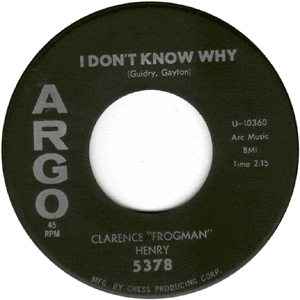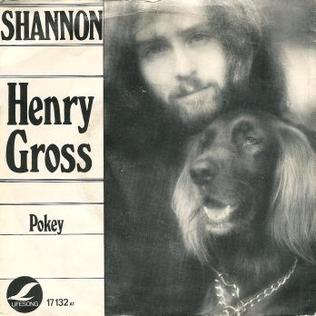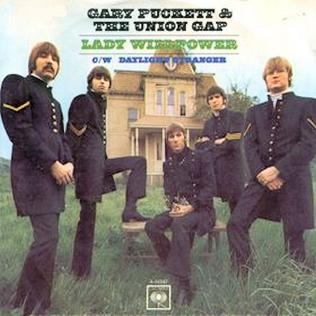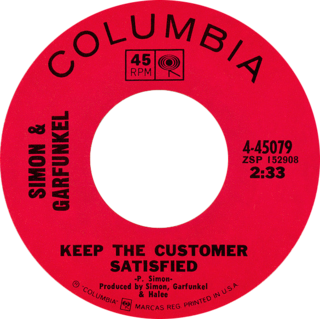
"Ain't Nothing Like the Real Thing" is a 1968 single released by American R&B/soul duo Marvin Gaye and Tammi Terrell, on the Tamla label in 1968. The B-side of the single is "Little Ole Boy, Little Ole Girl" from the duo's United LP. The first release off the duo's second album: You're All I Need, the song—written and produced by regular Gaye/Terrell collaborators Ashford & Simpson—became a hit within weeks of release eventually peaking at number eight on the US Billboard Hot 100 and number one on the Hot Soul Singles chart, the first of the duo's two number-one R&B hits. In the UK "Ain't Nothing Like the Real Thing" reached number 34.

"If" is a song written by American singer-songwriter David Gates in 1971. Originally popularized by his group Bread, "If" charted at No. 4 on the U.S. Billboard Hot 100 when released as a single in 1971 and No. 6 in Canada. It also spent three weeks at No. 1 on the U.S. Easy Listening chart, and one week at the top of the Canadian AC chart.

"Bye, Bye, Baby " is a popular song written by Bob Crewe and Bob Gaudio, a member of The Four Seasons, whose version of the song made it to No. 1 in Canada and No. 12 on the US Billboard Hot 100 in 1965. On the original issue of the single, the title was "Bye Bye Baby". However, on the album, The 4 Seasons Entertain You, and on later issues of the song, the name was changed to the longer, more familiar one. The song is about saying goodbye, not because the person is unloved but rather because the relationship is adulterous.

"That Girl" is a song by American R&B singer and songwriter Stevie Wonder. It was the leading single from Wonder's album-era 1982 greatest-hits compilation, Stevie Wonder's Original Musiquarium I, as one of four newer songs from the collection. The song spent nine weeks at number one on the Billboard R&B singles chart, the longest time a Stevie Wonder single spent at the top spot. It also peaked at number four on the Billboard Hot 100 for three consecutive weeks from March 20 to April 3, 1982.

"Oh Girl" is a song written by Eugene Record and recorded by American soul vocal group the Chi-Lites, with Record on vocals and also producing. It was released as a single on Brunswick Records in 1972. Included on the group's 1972 album A Lonely Man, "Oh Girl" centers on a relationship on the verge of break-up.

"(I Don't Know Why) But I Do" is an R&B song written by Paul Gayten and Bobby Charles, and performed by Clarence "Frogman" Henry.

"Another Saturday Night" is a 1963 hit single by Sam Cooke from the album Ain't That Good News. The song was written by Cooke while touring in England when staying in a hotel where no female guests were allowed. It reached No. 10 on the Billboard Hot 100 and was No. 1 on the R&B chart for a single week. In the UK, the song peaked at No. 23 on the UK Singles Chart.

"Kentucky Woman" is a 1967 song written and originally recorded by Neil Diamond.

"Keep on Singing" is a 1973 song composed by Danny Janssen and Bobby Hart, and was originally recorded by Austin Roberts from the album Austin Roberts. It was released as a single on Chelsea Records and reached No. 50 on the U.S. Billboard Hot 100 and No. 39 on the Cash Box Top 100. In Canada it reached # 79. "Keep on Singing" was best known as a hit single by Helen Reddy in 1974.

"Cupid" is a song by American singer Sam Cooke, released on May 16, 1961. It charted at number 17 on the Billboard Hot 100 and number 20 on the Hot R&B Sides chart; the track performed best in the United Kingdom, peaking at number seven on the UK Singles Chart. The song is featured on Cooke's greatest hits album, The Best of Sam Cooke (1962). Cooke's producers had asked him to write a song for a girl they had seen on a Perry Como TV show—but once they heard her sing, they kept "Cupid" for Cooke himself.

"Love Won't Let Me Wait" is a hit 1975 single by Major Harris, a former member of R&B/soul group The Delfonics. Written by Vinnie Barrett and Bobby Eli, the single is considered to be a staple of classic soul playlists, and was Harris' only entry into the top five on both the soul and pop charts. The single hit number five on the pop chart, and also hit number one on the soul chart for one week. Billboard ranked it as the No. 24 song for 1975. It was awarded a gold disc by the R.I.A.A. on 25 June 1975.

"Shannon" is a 1976 song by Henry Gross. It became an international hit, reaching #6 and achieving gold record status in the U.S. Billboard Hot 100 and #5 on the Cash Box Top 100. The song reached #1 in Canada and New Zealand.

"Lady Willpower" is a song written by Jerry Fuller and recorded by Gary Puckett & The Union Gap for their 1968 album Incredible. The single was awarded a million-selling Gold disc from the RIAA.
"Daddy's Home" is a famous song by American doo-wop group Shep and the Limelites. The song was written by the three members of the band, James "Shep" Sheppard (1935–1970), Clarence Bassett (1936–2005) and Charles Baskerville. The group recorded the original version of "Daddy's Home" on February 1, 1961, and it was released on Hull Records in March 1961 with the B-side being "This I Know".

"Hot Line" is a song recorded by American family group the Sylvers, from their 1976 album Something Special. It was written by Freddie Perren and Kenneth St. Lewis. It became an international Top 10 hit, and is a gold record.

"This Girl Is a Woman Now" is a song written by Victor Millrose and Alan Bernstein and was recorded by Gary Puckett & The Union Gap for their 1969 album The New Gary Puckett and the Union Gap Album.

"Never Ending Song of Love" is a song written by Delaney Bramlett, and, according to some sources, by his wife Bonnie Bramlett. It was originally recorded with their band, Delaney & Bonnie & Friends, in 1971 on the album Motel Shot. Released as a single by Atco Records the same year, "Never Ending Song of Love" became Delaney & Bonnie's greatest hit on the pop charts, reaching a peak of No. 13 on the Billboard Hot 100 and No. 8 on Easy Listening. It reached No. 16 in Australia.

"Only Sixteen" is a song by American singer-songwriter Sam Cooke, released in May 1959. The song was a top 15 hit on Billboard's Hot R&B Sides chart and also charted within the top 30 of the Billboard Hot 100 and the UK Singles Chart. In the UK it was covered, and taken to No. 1, by Craig Douglas.

"Stormy" is a hit song by the Classics IV released on their LP Mamas and Papas/Soul Train in 1968. It entered Billboard Magazine October 26, 1968, peaking at #5 on the U.S. Billboard Hot 100 chart and #26 Easy Listening. The final line of the chorus has the singer pleading to the girl: "Bring back that sunny day". The single, along with the prior release of "Spooky" and, soon after, the release of "Traces", formed a trio of solid hits for the band.

"Keep the Customer Satisfied" is a song by American music duo Simon & Garfunkel from the group's fifth studio album, Bridge over Troubled Water (1970). It was included as the B side of their signature hit, "Bridge over Troubled Water". "Keep the Customer Satisfied" recounts the exhausting tours that Simon grew tired of, a similar theme to that of their earlier song, "Homeward Bound".



















